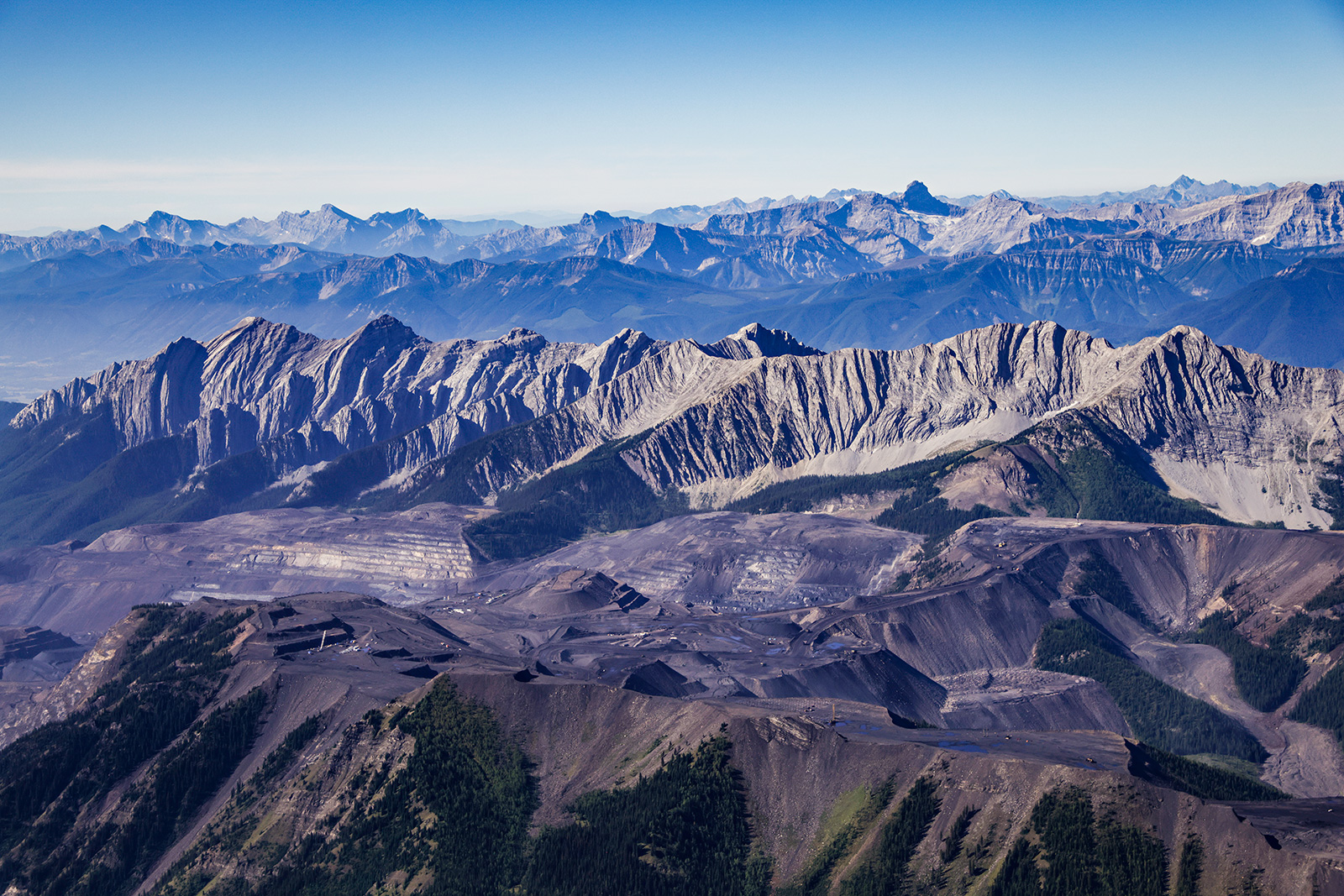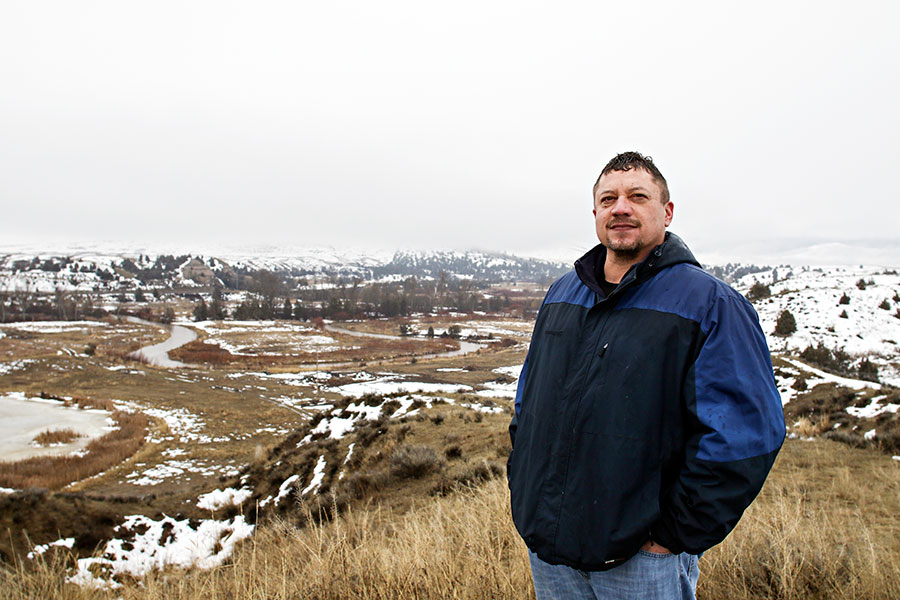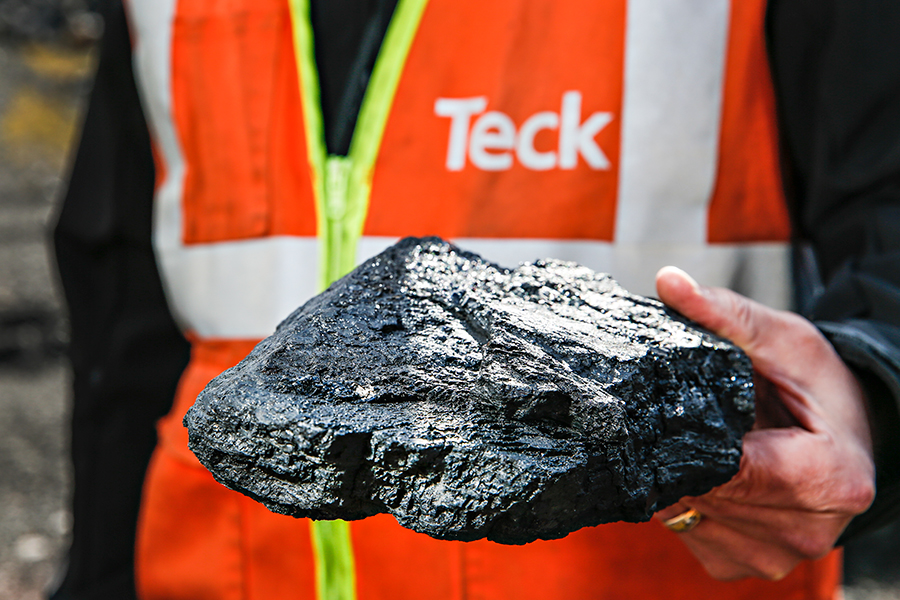Indigenous Leaders Take Transboundary Pollution Concerns to Washington
As U.S. and Canada near an agreement to resolve the contamination crisis on the Elk-Kootenai watershed, tribal leaders push for an International Joint Commission reference
By Tristan Scott
Last week’s announcement that Canada and the U.S. had reached “an agreement in principle” to reduce and mitigate pollution in the Elk-Kootenai watershed, where for decades British Columbia coal mines have leached toxic contaminants, signaled a breakthrough in high-level binational talks that have stalled for years, even as the mining behemoth Teck Coal Limited lays plans to expand its footprint along the border with Montana.
According to mounting evidence and research spanning decades, the mines operated by Teck have jeopardized the water quality of a prized international watershed forming the Kootenai River and Lake Koocanusa, the reservoir straddling the boundary separating Montana from B.C., in which heightened levels of selenium, cadmium, nitrate and sulphate have drawn global attention.
For Indigenous leaders from B.C.’s Ktunaxa Nation, as well as those from the Confederated Salish and Kootenai Tribes (CSKT) in Montana and the Kootenai Tribes of Idaho (KTOI), for whom the ongoing contamination imperils aboriginal territory that holds cultural and ecological value, the recent step forward in U.S.-Canada negotiations also marked an opportunity to ramp up pressure.
“This is a sign that the Canadian government may be ready to push back against fierce lobbying by the British Columbia provincial government and the politically powerful mining conglomerate Teck Coal Limited,” CSKT Chairman Tom McDonald said in response to a joint statement from President Biden and Prime Minister Trudeau. “Promises have been made by the Canadian government and then broken before. It is encouraging that this joint statement acknowledges that action needs to be taken, but clear pressure needs to be focused on ensuring Canada lives up to its commitment. This cannot just be more empty words. This is the perfect time for Prime Minister Trudeau to take a strong stand for the environment and for the people.”
Biden wrapped up a state visit to Canada last Friday, and in a joint statement with Trudeau pledged to address the contamination crisis, saying the two governments “intend to reach an agreement in principle by this summer to reduce and mitigate the impacts of water pollution in the Elk-Kootenai watershed, in partnership with Tribal Nations and Indigenous Peoples.”
“That was big,” said Rich Janssen, head of CSKT’s Natural Resources Division, adding that Canada’s faltering has not instilled confidence in the past. “We’ve heard Canada say that before, but never at this level. That’s the difference.”

To capitalize on the momentum, Indigenous leaders from the three transboundary nations this week converged on Washington, D.C., where they continued the negotiations by rallying support with bipartisan U.S. government allies, including congressional representatives and administration officials. At the top of their agenda is the legacy and ongoing contamination of the Kootenai (spelled Kootenay in Canada) watershed, a sprawling river system that flows through the traditional territory of B.C.’s Ktunaxa Nation, downstream into Montana’s Lake Koocanusa and Kootenai River, which then spills into Idaho.
The demand of the First Nations is clear: they want a joint reference to the International Joint Commission (IJC) under the Boundary Waters Treaty of 1909 for the Kootenai Basin “regarding the transboundary impacts of mining,” according to the statement. “The Biden administration must ramp up the pressure on the Canadian government to stand up to Teck Coal and finally join with the United States to establish an Indigenous-led watershed board under the Boundary Waters Treaty.”
Last year, the governments of the Ktunaxa Nation were informed that a breakthrough had been negotiated and a joint action between the two governments had been agreed upon. However, the tribal leaders were dismayed when Canada broke its promise “amid a fierce lobbying campaign by Teck Coal and its allies within the British Columbia provincial government,” according to a press release from the Ktunaxa, CSKT and KTOI.
As Canada has “dragged its feet for over a decade,” the release states, the Kootenai Watershed has reached a crisis point.
“Canada’s negligence and failure to act is directly impacting our fish, water, and Tribal Treaty lands,” according to Vice Chairman Gary Aitken Jr. of the KTOI, who added that “selenium concentrations in the Kootenay are alarming and significantly exceed the standards permitted by Montana, Idaho, and the United States.”
The rising pressure for an IJC reference comes as Teck Resources Limited, Canada’s largest diversified mining company, takes steps to expand its footprint in the Elk River Valley. Dubbed the Fording River Extension Project, it would be part of the existing Fording River Mine complex, which for more than five decades has been strip-mining the mountains of B.C.’s Elk River Valley. The extension project would include the removal of an adjacent mountain-top and is projected to produce an estimated 10 million metric tons of coal per year, extending the mine’s lifespan by several decades, company officials say.

“The United States must throw its full weight behind getting Canada to honor its commitments to Indigenous governments and support a joint reference,” said Mike Dolson, a CSKT councilmember, adding “selenium contamination should be a top priority for the United States, not only because the U.S. government has an obligation to honor our tribal sovereignty, but because these toxic pollutants threaten the health and safety of all communities across Montana, Idaho, and British Columbia.”
“We have stewarded the waters and lands in the Kootenay Watershed since time immemorial, and we have sought to preserve these resources for future generations,” McDonald added. “Now, Canada’s negligence and Teck’s pollution threaten to permanently damage our legacy of stewardship. As U.S. and Canadian governments convene, we ask them to stand in unity with Indigenous leadership of the transboundary Ktunaxa Nation and immediately address this issue under the Boundary Waters Treaty.”
U.S. Sen. Jon Tester, D-Montana, pressed Biden on the issue ahead of the President’s trip to Canada. Tester first asked the State Department to tackle the transboundary water pollution in June 2021, and last week renewed his calls for Biden to engage with the Canadian government and the IJC to “resolve the ongoing selenium contamination issue in the Kootenai watershed in Montana.”